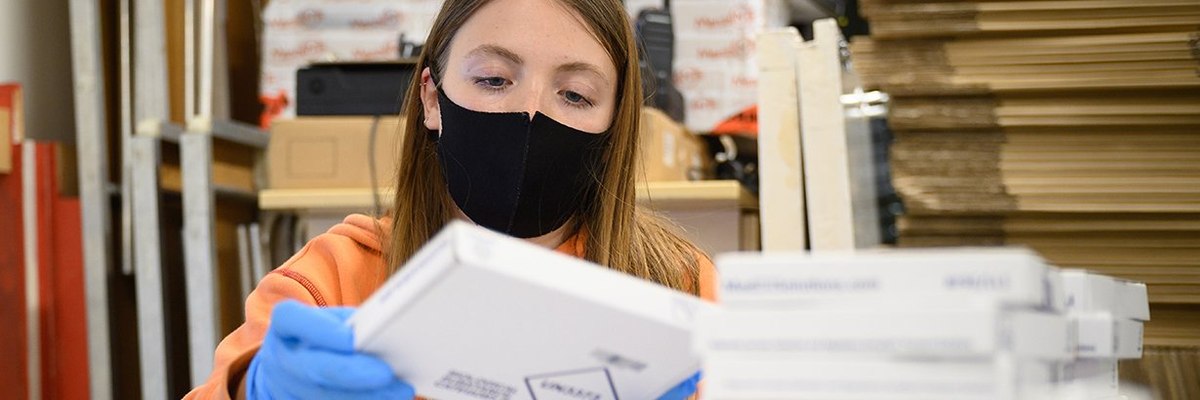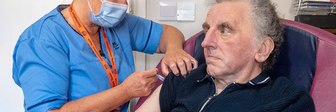One year on from the first national lockdown taking effect, here’s a recap of some of our key coronavirus trackers from the past year.
Fear of catching coronavirus
Our first survey, on 1 March 2020, found only a quarter of Britons were very or somewhat scared of catching COVID-19. This would rise rapidly over the course of the month, to 38% on 13 March, then to 48% on 20 March, before peaking at 61% on 27 March. Concern then trended down until May, at which point it stayed consistently in the mid- to high-forties over the summer, before trending up again over the autumn/winter.
Concerns hit 56% in late January before subsiding once more. Currently 45% of Britons are worried about catching the disease, a figure akin to the most relaxed periods of summer 2020.
Things can only get better
Since May, YouGov has asked people in each country whether they think the national COVID situation is getting better or worse. Having slumped over the course of the summer, perceptions rallied slightly in August before plummeting to a low of just 8% thinking things were getting better in October. Another recovery followed, with almost half of people (46%) thinking the situation was improving by early December, before sinking to a record low of 4% in early January.
Optimism has surged since then as the vaccine programme picked up pace, reaching record highs of 85% in early March. This has declined slightly to 77% in our most recent survey, about the same level as in early summer 2020.
Government handling
The early days of the tracker coincided with the government’s COVID honeymoon period, with almost three quarters of Britons (72%) saying the government was doing a good job in late March. From mid-April approval quickly declined, reaching 39% by early June.
The government’s lowest ebb came in mid-September, when just 30% gave them a good score. Approval rose slowly as cases declined, before falling again with the winter surge. The success of the vaccine rollout has warmed people towards the government once again, with Britons currently saying the government is doing well by 49% to 44% in our latest survey.
Hands, face, space
Face masks are such a fact of daily life now that it’s easy to forget there was a period where Britons were an international outlier in refusing to wear them. By early June only one in five Britons were covering their faces, at a time when the large majority of people in pretty much all countries outside the Nordics were doing so.
These numbers began to tick up quickly after a trickle of measures were introduced to make their use mandatory on public transport and in various places in Scotland, but it wasn’t until they were made compulsory in supermarkets in England that numbers finally started to rise in a big way. Between 11 July and 30 July face mask usage rose from 38% to 69%.
By mid-August three quarters of Britons were wearing face coverings, and usage has remained consistent since that point.
Practicing improved hygiene has been slowly declining, however. In the initial outbreak period the proportion of Britons upping their cleanliness standards rocketed to 77% by early April, before declining to 64% in mid-May. It has broadly been on a very slow downward trajectory ever since.
Currently 51% of Britons say they’re still taking more care with their hygiene, although this is the lowest it has been since the very beginning of the outbreak.











